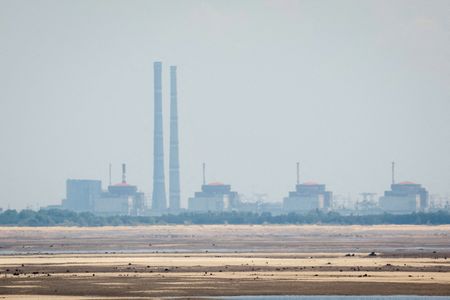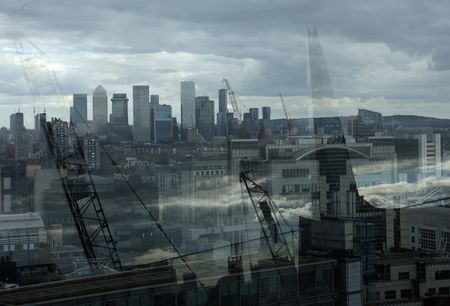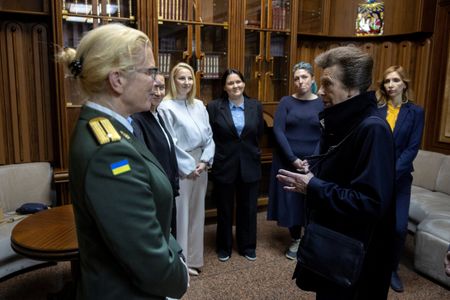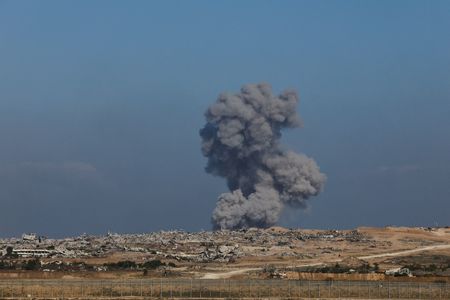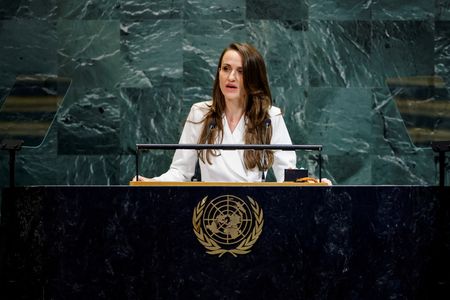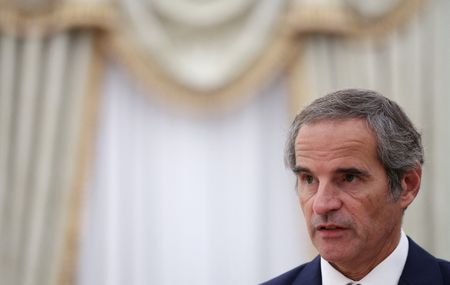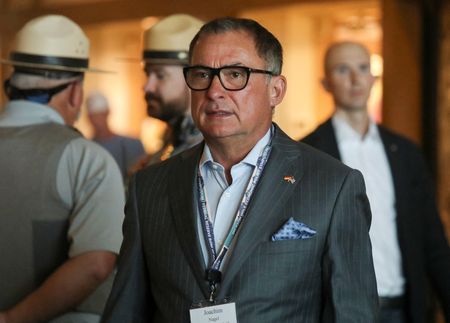(Reuters) -Ukrainian President Volodymyr Zelenskiy said on Tuesday the situation at the Russian-occupied Zaporizhzhia nuclear power station had become critical, with Russian shelling preventing restoration of a power line needed to cool the reactors and prevent a meltdown.
The head of the International Atomic Energy Agency, the U.N. nuclear watchdog, said it was working with both sides to restore the external power line. Rafael Grossi said there was no immediate danger as long as diesel generators remained in operation, providing emergency power for the facility.
Zelenskiy, speaking in his nightly video address, said one of the diesel generators providing emergency power was no longer working, seven days after external power lines went down.
“This is the seventh day. There has never before been such an emergency situation at the Zaporizhzhia plant. The situation is critical. Russian shelling has cut the plant off from the electricity network,” Zelenskiy said.
The Zaporizhzhia plant, Europe’s largest with six reactors, was seized by Russian troops in the first weeks of Russia’s February 2022 invasion of Ukraine and each side regularly accuses the other of attacks that endanger nuclear safety.
It produces no electricity at the moment, but needs power to ensure fuel in the reactors remains cool and no meltdown occurs. It was the 10th occasion since the start of the conflict that the plant has been disconnected from the power grid.
“This is a threat to everyone. No terrorist in the world has ever dared to do with a nuclear power plant what Russia is doing now. And it is right that the world not remain silent.”
Grossi, in a statement issued late on Tuesday, said he was “in constant contact with the two sides with the aim to enable the plant’s swift reconnection to the electricity grid.”
“While the plant is currently coping thanks to its emergency diesel generators – the last line of defence – and there is no immediate danger as long as they keep working, it is clearly not a sustainable situation in terms of nuclear safety,” he said.
“Neither side would benefit from a nuclear accident.”
Grossi said both sides noted military activity had prevented them from carrying out necessary repairs. He said the plant was operating eight diesel generators, with nine units in standby mode and three in maintenance.
“I strongly encourage both sides to work with us and enable these essential repairs to take place,” he said.
Russian officials have not commented on the latest statements on conditions at the plant.
Grossi has repeatedly called on both sides to uphold nuclear safety. IAEA monitors are stationed permanently at Zaporizhzhia and at Ukraine’s three other nuclear power stations.
(Reporting by Ron Popeski and Oleksandr Kozhukhar and Ananya Palyekar in Bengaluru; Editing by Chris Reese and Lisa Shumaker)

